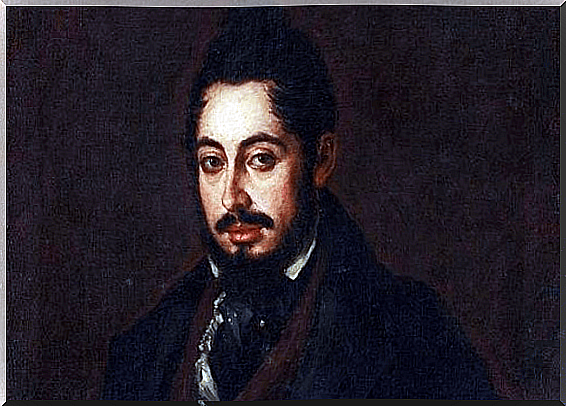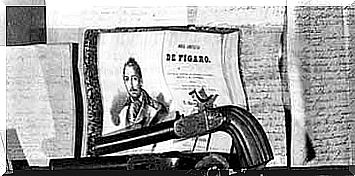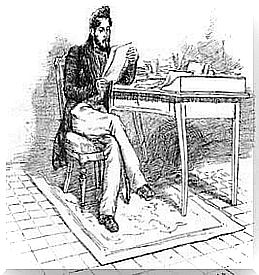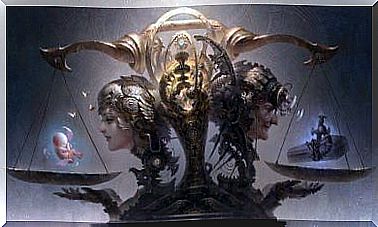Mariano José De Larra: Biography Of The Romantic Writer

One of the most emblematic figures of Spanish Romanticism is, without a doubt, that of Mariano José de Larra. Despite its short life, its production encompasses more than two hundred newspaper articles. Remembered for his contributions to literature and journalism, Larra has also been recognized as a figure who embodies the values of Romanticism; a melancholic figure whose life was cut short by heartbreak and subsequent suicide.
Larra’s romantic truth captivates and impresses us, like Espronceda, it transmits a totally nonconformist political message that did not finish curdling in its time. However, it fueled renewal eagerness and critical spirit. Larra will leave a deep mark on Hispanic American authors, but especially on the Generation of ’98. The authors of ’98 will rescue his figure and make a manifesto at his grave.
Larra was born in Madrid in 1809, but soon his family would go into exile to France and later return to Madrid. The family changed residence on multiple occasions, his father was a doctor and Larra also began his medical studies, but did not finish them.
In Valladolid, Larra began his studies in Law, although he did not finish them either. It is said that, during this period, Larra fell in love with a much older woman who turned out to be his father’s lover. This tragic and impossible love would mark Larra, although, without a doubt, the love that ended up plunging him into tragedy was the one he felt for Dolores Armijo.
Larra and Romanticism
When we say that Larra represents Romanticism, we acquire the obligation to explain what Romanticism really is. Romanticism emerged in Germany and the United Kingdom at the end of the 18th century, reached its expansion in the first half of the 19th century and spread throughout the rest of Europe. It was born as a reaction to neoclassical trends, to the imitation of the classics of Antiquity and to the canon that had been established at the time.
To date, artistic and literary production had been strongly influenced by the canon, by predetermined stereotypes and was based on imitation. With the arrival of Romanticism, subjectivity prevails over objectivity, the universal disappears and the authors opt for feeling, for the exaltation of the self. Romanticism is the search for individual freedom, of feeling, it is related to nature and, as a consequence of its subjectivity, it will lead to different aspects linked to the territory and the individual.

All this encourages nationalisms to grow, the reality is different in every corner and the authors write from their own perspective. The consciousness of the self appears as a totally autonomous entity, where originality and nostalgia will take center stage. For this reason it is not surprising that autobiographies acquire importance and, at the same time, revolutionary sentiment. In each country it will occur in different ways, in Spain, it occurred late and was overshadowed by the advance of realism.
Some of the most representative authors of this period are Espronceda and the Duke of Rivas; Between the sorts, stand out the serial or the novel by installments and the articles of customs, where Larra will be fundamental. The customs article describes situations such as parties, behaviors, values … and adds a certain satirical or nostalgic component. Larra looked around at society and later criticized it; We are talking about a man full of contradictions that would cause him to die prematurely.
The journalism
Larra began to write during the Absolutist Restoration, El Duende Satírico del Día was his first journalistic project when he was just 19 years old. Larra still did not have a clear political opinion, he wanted to be a journalist and criticize the society of his time, continuing, in some way, the baroque tradition. As time goes by, we will see how Larra enters into contradictions, navigating in a dangerous way between different currents of opinion.
Between 1832 and 1833, The Poor Little Talkative was published in Madrid , a publication that defined itself as a satirical magazine of customs and that Larra signed under the pseudonym Pérez de Munguía. At this moment, Larra makes an indirect and devastating criticism at the same time, in which the satirized is the State and not the political power. However, the first problems will appear, he will attack the Literary and Commercial Mail and insult José María Carnero. This situation will make Larra have to publicly retract and will end up closing his newspaper.
In The Poor Little Talker , we witness a contrast of points of view, the resource of the fictional narrator is used and the tradition of letters from Montesquieu and Cadalso is followed. In Figaro (1835), we find articles of customs that will become political articles. From this period are some as well known as The Old Castilian , Come back tomorrow , El Ministerial or Third letter from a liberal from here to a liberal from there . Larra is shown as a man tired of his country and will end up leaving Spain.
Larra has problems with censorship, he criticized everyone and found himself in an unbreathable environment. Added to these problems were his emotional ups and downs with Dolores Armijo and other personal conflicts. Furthermore, as a good romantic, he longed to undertake an intellectual journey that would allow him to broaden his horizons. On this trip, he met the refined society of Paris and came into contact with some of the most prestigious authors of the time.
During this period he collaborated with French writers on travel books, translated and prefaced The Dogma of Free Men. Upon his return, he has acquired a broadening of horizons, knows how European writers live and has immersed himself fully in Romanticism. In this way, it acquires a more social component, assuming that literature should be for humanity and provides us with works of greater depth and modernity.

Larra’s suicide
Larra has been described as a thoughtful man, prone to introspection and frustration. It seems that his suicide was something that many could have anticipated; at any moment, Larra was going to end his life. We are talking about a fickle man, with many more projects started than carried out; he changed his mind and lived love in a really dramatic way.
In his youth, he fell in love with an older woman who turned out to be his father’s mistress; At the age of 20 he married a young woman named Josefina Wetoret with whom he had a daughter. However, it was not a happy marriage, but Larra and his wife seemed not to fit in at all. Josefina has been described as ridiculous, superficial and simple, something that, of course, is out of step with what we know of Larra today.
Larra’s great and last love was Dolores Armijo, a married woman with whom he had a relationship. This infidelity was discovered by their respective partners, from whom they separated. In 1835, Larra traveled through Europe and, on his return, the situation in Spain was quite unstable. Armijo, in 1837, decides to return to her husband after two years of separation.
In February 1837, Larra no longer wrote, he found himself plunged into deep sadness caused by the situation in Spain and its emotional ups and downs. He only writes three letters addressed to Dolores Armijo requesting an interview. On the afternoon of February 13, 1827, Dolores Armijo visits Larra in order to ask for some documents, she has decided to travel to the Philippines to meet with her husband.
Larra lost the only reason that kept him alive and shot himself ending everything a few days after his 28th birthday. Larra’s suicide was not because of Dolores, it was because of Spain, because of disappointment and hopelessness … because for him nothing made sense anymore. The world around him was hellish and, when he lost Dolores, the last thread that linked him to life was also cut. Curiously, Dolores did not reach her destination either, her trip to the Philippines was cut short by the sinking of the ship that led to her death.









